Enter the Metaverse:
Time for governments to be bold –
and choose wisely
By Isabella Williamson
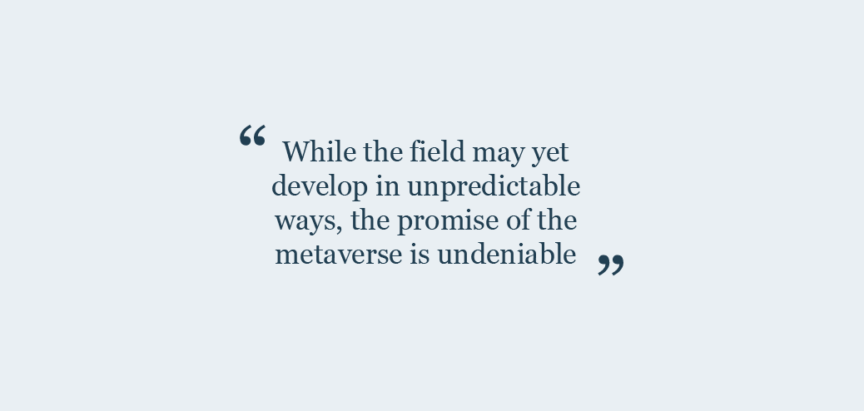
Smart policymakers take the lead
The metaverse is upon us, and many are hailing a new digital era. Smart policymakers will seize the chance to be at the forefront of the GovTech revolution.
Digital worlds are blossoming everywhere you look these days. Barbados is opening a digital twin of its embassy in Decentraland, Saudi Arabia is offering the first online, immersive UNESCO heritage-site experience and Ariana Grande has performed to millions in Fortnite – and hundreds of similarly ambitious and innovative projects are springing to life around the globe.[1] While the field may yet develop in unpredictable ways, the promise of the metaverse for governments is undeniable. Forward-thinking government bodies would do well to explore its enormous potential.
Case study: Barbados
Barbados may be a small island nation, but it’s turning out to be a pioneer in the evolution of global diplomacy. On 12 August 2021, the government of the Republic of Barbados approved the establishment of the world’s first metaverse embassy.[2] This follows disruptions to traditional diplomatic channels during the COVID-19 pandemic. The Caribbean country is working with different companies to create a common access point for various metaverse platforms.
E-consular services will be a core feature of this development. However, the new technology won’t completely replace traditional diplomatic channels: Barbados will continue to maintain physical embassies. More broadly, it’s hoped that the metaverse embassy will build ties with other governments and strengthen business, tourism, and cultural engagement. It forms part of broader efforts to develop Barbados into a world hub for digital transformation.

A new universe beckons
Bringing together emerging technologies – artificial intelligence, cloud computing, blockchain technology, augmented reality (AR), virtual reality (VR) and mixed reality (MR) – the metaverse is an important element of Web3 (the latest evolution of the internet).
There’s much debate about how this new tech functions and what it will yield. In recent months, many have questioned the hype; but one need only look back on the ascent of Web2 (the internet as we know it now) to see how rapidly technologies can evolve. In the coming years, immersive worlds – where users can play, create, transact and interact – are sure to grow in scale and impact. For governments that want to be ahead of the curve, now is the time to explore and learn.
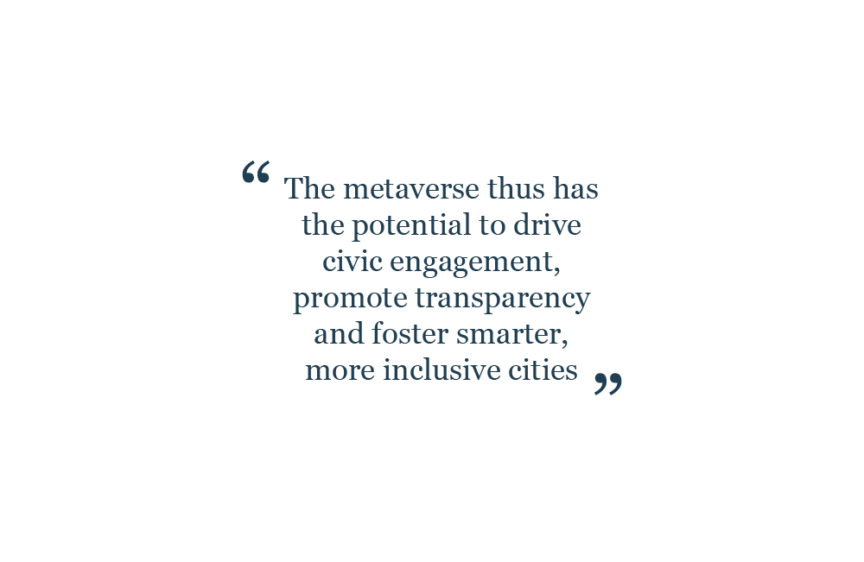
Three areas where governments
can be pioneers
Some areas of government will continue to operate adequately in their current off or online modes. But there are areas where the metaverse can really shine, offering functionality far beyond what Web2 has to offer.
1. Public services
Where live contact between the public and government representatives is desirable, virtual spaces are vastly more convenient and efficient than physical offices – both for citizens, who otherwise have to travel and queue for access, and for departments tasked with the upkeep of brick-and-mortar buildings.
The metaverse facilitates “face-to-face” (avatar-to-avatar) interactions that older digital modes cannot offer, making services more accessible and human-centred. An immersive “town hall” is easy to navigate, allowing citizens to source information, access services, and resolve complaints with virtual representatives. The metaverse also facilitates multi-person gatherings, which people can attend from anywhere at the touch of a button.
The metaverse thus has the potential to drive civic engagement, promote transparency, and foster smarter, more inclusive cities. The Seoul Metropolitan Government is one of the first major cities to enter the metaverse, offering immersive municipal services.[3] And in 2022, the Dubai Electricity and Water Authority (DEWA) launched its DEWAVerse platform, which offers customer service via a hologram “happiness agent”.[4]
Case study: Seoul, South Korea
Having announced in 2021 that Seoul would be the first major city to enter the metaverse, South Korea launched the Metaverse Seoul development in January 2023. Approximately $1.6 million has been invested into the first phase of the project, which is part of the Seoul Vision 2030 post-COVID recovery plan. The aim is to create a virtual ecosystem that supports municipal administration, tourism and the civil service.[5]
Seoul’s Metropolitan Government (SMG) is working collaboratively across sectors to develop the metaverse platform, including the Virtual Mayor’s Office, Seoul FinTech Lab, Invest Seoul and Seoul Campus Town. Metaverse Seoul allows users to visit tax offices, access counselling, read e-books, and convene public gatherings, among other functions.
The platform will include major tourist attractions, allowing citizens to attend mass events like the Seoul Lantern Festival. Digital technology will be used to collect data on traffic, public safety, and environmental metrics, and to support the monitoring of sewers and wastewater. This data will feed into a central operations platform and help the city to transform into a “smart city”. AI chatbots will provide citizens with information. Citizens will also be able to meet city officials and services via virtual consultations.
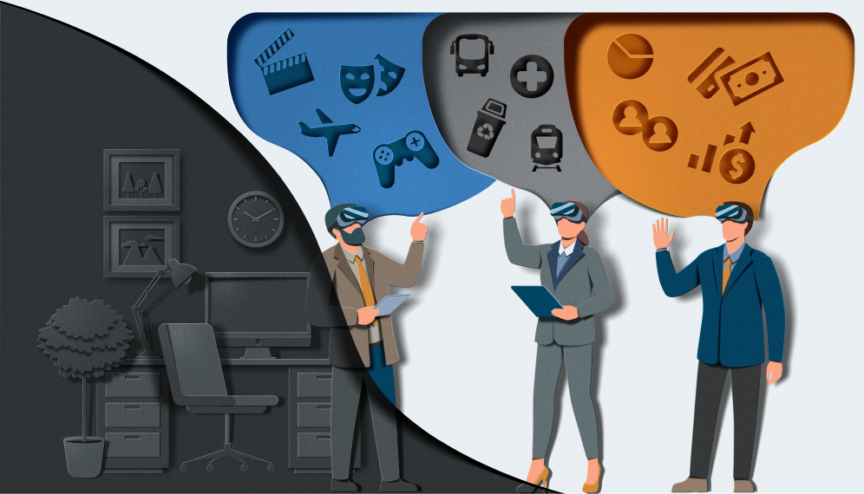
2. Culture, tourism and
entertainment
Popular artists like Lil Nas and Ariana Grande have played to millions of virtual viewers in metaverse concerts.[6] Governments, too, are turning to the metaverse to raise their international presence. Many are using cheap and convenient digital-tourism modes to promote cultural assets. For example, in 2022, to celebrate the centenary of the discovery of Tutankhamun’s tomb, Egypt developed a digital model of an ancient city, “Metatut”.[7] Saudi Arabia’s Royal Commission for AlUla has put its UNESCO World Heritage site, the Hegra’s Tomb of Lihyan, in the metaverse.[8] In the same year, Dubai and Abu Dhabi announced plans to launch an Emirates metaverse that replicates real-life experiences and places.[9]
Case study: Egypt
In 2022, Tutera, a creative community hub, launched the development of Egypt’s first virtual city.[10] The city, called MetaTut in honour of the ancient ruler Tutankhamun, went live in November 2022.
The virtual city reflects the rich history of Egypt and celebrates Egyptian culture and heritage. It features key landmarks for digital tourists to explore, and combines ancient artefacts with modern and futuristic elements. The focus is not only on tourism, but also on providing virtual educational experiences for schools and universities, and as a place for international connection and business.
The country has also made strides in digital healthcare. The General Authority of Healthcare aims to promote medical travel using metaverse technology. Potential patients from anywhere in the world can visit and inspect a range of health facilities before choosing treatment. This forms part of broader plans for Egypt to embrace a “smart” future, which will aid in post-COVID recovery.[11]
Case study: AlUla, Kingdom of Saudi Arabia
In 2022, the Kingdom of Saudi Arabia’s Royal Commission for AlUla (RCU) announced that the ancient city of Hegra will be the first UNESCO heritage site to enter the metaverse. The digital Hegra includes a 3D model of Hegra’s Tomb of Lihyan, Son of Kuza, allowing virtual tourists to explore in detail its unique features in an immersive tour. [12]
The broader aim of the pioneering project is to support tourism and cultural awareness. It forms part of Saudi Arabia’s Vision 2030 National Transformation Programme to advance digital transformation and innovation.
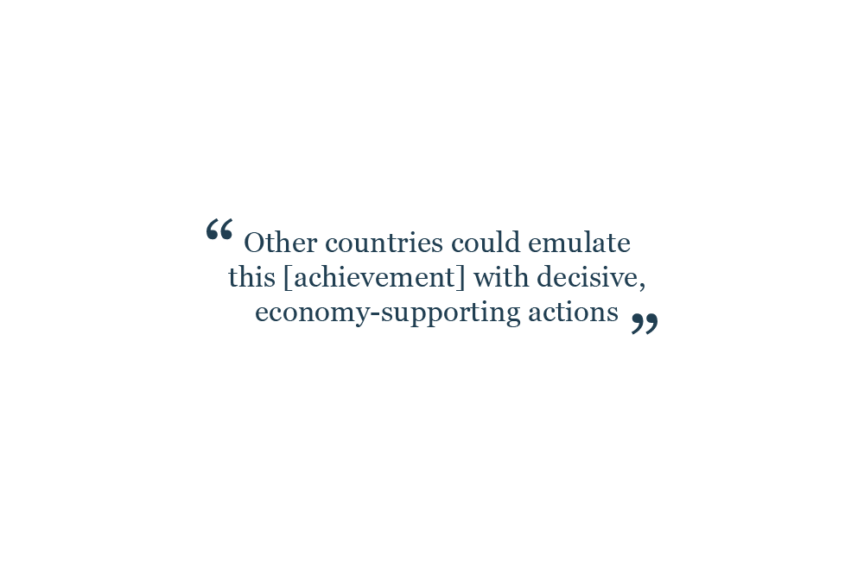
3. Boosting economies
The metaverse provides opportunities for governments to strengthen economies and build reputations as tech frontrunners. Dubai captured the world’s attention in 2022 with its goal of becoming one of the top-ten metaverse-economy cities, with an ecosystem of Web3 businesses, infrastructure, regulations and capabilities.[13] Other countries could emulate this with decisive, economy-supporting actions:
Take the regulatory lead
Much of the metaverse and Web3 lack adequate regulation. To earn global trust, governments will need to develop policies around privacy, misinformation, and intellectual property. Dubai has grasped the initiative here: its landmark 2022 Metaverse Assembly was attended by global experts, government entities and decision-makers.[14]
Case study: Dubai, United Arab Emirates
The Dubai Metaverse Assembly in September 2022 brought experts together to explore potential applications of the metaverse. That year, the company Metaverse Holdings announced that Dubai would become the first virtual city in their metaverse rollout, replicating real-life experiences, events and locations.[15] The Dubai Electricity and Water Authority (DEWA) has also launched a metaverse platform, offering customer service via a hologram avatar. [16]
The project forms part of efforts to make Dubai a global hub for digital innovation and metaverse technology, and to pursue new economic opportunities, via the city’s Higher Committee for Future Technology and Digital Economy.
Following the UAE launch, Metaverse Holdings is planning to explore the metaverse potential of other cities too, including London, New York, Doha and Riyadh.
Case study: Japan
For many years, Japan has been a frontrunner in the technology sector. The island state formally entered the metaverse conversation in October 2022, when the government announced its plans to boost Japan’s economy by expanding Web3 services that utilize the metaverse and nonfungible tokens (NFTs).[21] Japan has already issued NFTs to authorities to solve local challenges and has hinted at digitizing national identity cards.
Just last month, state-owned research and development organization TBT Lab Inc., together with a consortium of companies including Mitsubishi and Fujitsu, announced plans to build the Japanese Metaverse Economic Zone, also called “Ryugukoku”. This internationally competitive Web3 business platform will enable end users to build, transact and play in the digital realm. Japan is eager to bring in more companies and global government agencies to collaborate on developing Ryugukoku.[22]
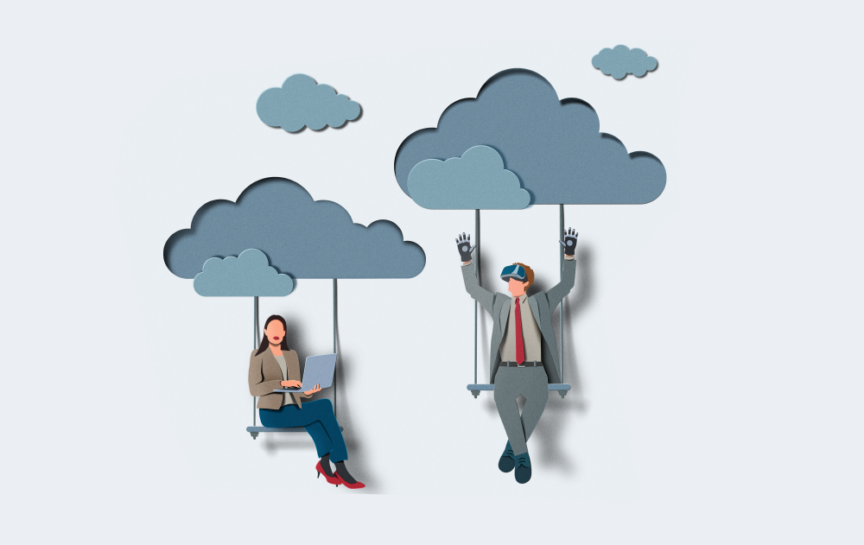
Nurture Industry
The metaverse can foster new businesses, jobs, markets and ways of working. Dubai, for example, aims to support 40,000 virtual jobs with its metaverse program, increase the number of metaverse and blockchain companies fivefold, and add $4 billion to the economy by 2030.[17]
As part of its Digital Road Map 2021–2024, Indonesia seeks to leverage the metaverse to support the development of SMEs, which employ 97 percent of the workforce. [18] Japan has also announced plans to promote an internationally competitive ecosystem of Web3 businesses. These plans include the development of a Japanese Metaverse Economic Zone, “Ryugukoku”, where people can play, build and transact.[19]

Experiment
Virtual environments enable governments to tinker with processes at low cost and risk. For example, in Massachusetts, the Boston Planning and Development Agency has developed “digital twins” of the city’s water and sewer systems, which it can monitor and adjust. This helps to guide planning and maintenance decisions, and allows ideas to be tested before they take effect in the real world. [20]
How can governments launch their metaverse journeys?
The metaverse is a complex ecosystem. Thousands of virtual worlds exist, each with unique qualities. Government agencies can best navigate this environment by keeping a few guiding principles in mind:
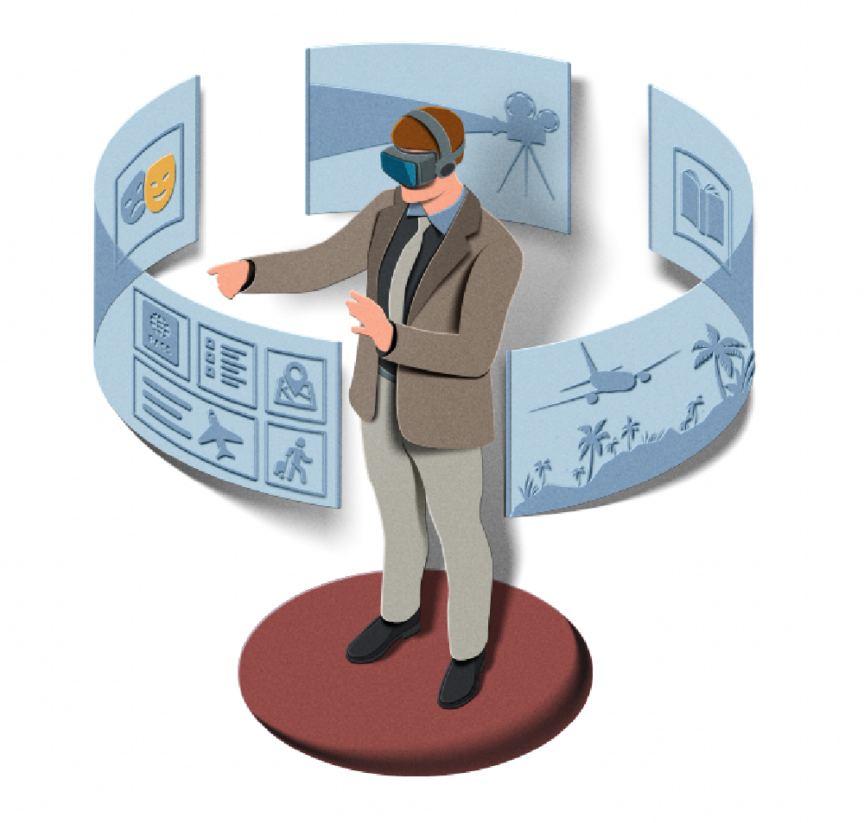
1. Be clear on the challenges
Mismanaged, the metaverse has the capacity to amplify socio-political problems: crime, privacy and data-security breaches, misinformation and harassment.
2. Review infrastructure and capabilities
Some countries have digital infrastructure that they can build on; others may be starting from scratch. In either case, specialised talent is crucial. Few government agencies will have all the skills they need in-house and may consider Web3 recruitment programs as well as upskilling employees.
3. Strategy is key
We’re flooded with information about the metaverse, which makes research and finding use cases tricky. Keep strategy as your guiding light, while consulting key stakeholders.
4. Bring the vision to life
An effective metaverse strategy relies on research, capacity building and strategic guidance by a dedicated team. Implementation will require a comprehensive communications and marketing plan to ensure the vision is communicated effectively.
5. Adopt an agile mindset
This technology is new and rapidly changing. Be prepared to shift and adapt as the landscape evolves. Being a frontrunner is no easy feat.
In 2023, we expect further excitement and debate around the metaverse, as the public sector wakes up to increased activity in immersive worlds. Right now, bold government actors have the chance to step up and establish themselves as pioneers in digital space.
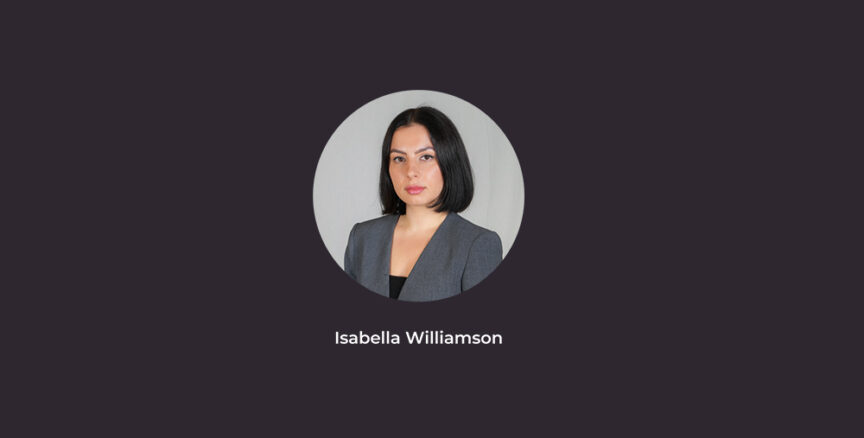
About the author
Isabella is a multilingual strategic communications consultant specialising in emerging technologies. She advises key public sector stakeholders in the GCC region on the implications of the Metaverse, Web3 and AI for their organization from a strategy, policy and communications perspective.
References
[1] Wyss, J, “Barbados Is Opening a Diplomatic Embassy in the Metaverse”, Bloomberg, Dec 14 2021.
[2] Wyss, J, “Barbados Is Opening a Diplomatic Embassy in the Metaverse”, Bloomberg, Dec 14 2021.
[3] Thompson, C, “South Korea Launches Metaverse Replica of Seoul”, CoinDesk, Jan 17 2023.
[4] Dubai Electricity & Water Authority, “WELCOME TO DEWAVERSE”, 2023.
[5] Mohmad, P, “Seoul Government Launches its First Metaverse Project Officially”, Analytics Insight, Jan 17, 2023.
[6] Kastrenakes, J, “Lil Nas X’s Roblox concert was attended 33 million times”, The Verge, Nov 16 2020; “Ariana Grande sings in Fortnite’s metaverse”, BBC News, 9 Aug 2021.
[7] Samir, S, “Egypt launches first city on metaverse”, Al-Monitor, Dec 8 2022.
[8] Royal Commission for AlUla, “The Royal Commission for AlUla enter the Metaverse with first fully explorable 3D model of Hegra’s Tomb of Lihyan, a UNESCO World Heritage site”, Nov 7, 2022.
[9] Gore, N, “Dubai and Abu Dhabi Dubbed the World’s First ‘Metaverse Cities’”, The Fintech Times, Sep 6 2022.
[10] “MetaTut – The first Egyptian city on Metaverse to revive ancient Egypt’s glory”, Think Marketing, Dec 1 2022; Samir, S, “Egypt launches first city on metaverse”. Al-Monitor, Dec 8 2022.
[11] “Metaverse technology to promote medical travel to Egypt”, LaingBuisson News, Jul 5 2022.
[12] “Saudi Arabia’s AlUla enters the metaverse”, Arabian Business, Nov 14 2022.
[13] “The Metaverse: Dubai Set to Be the World’s First Virtual City in Global Metaverse Launch”, GlobeNewswire, Sep 13 2022.
[14] Dubai Future Foundation, “Dubai Metaverse Assembly”, 2023.
[15] Government of Dubai Media Office, “Hamdan bin Mohammed launches Dubai Metaverse Strategy”, Jul 18 2022; Dubai Future Foundation, “Dubai Metaverse Assembly”, 2023; “The Metaverse: Dubai Set to Be the World’s First Virtual City in Global Metaverse Launch”, GlobeNewswire, Sep 13, 2022; Gore, N, “Dubai and Abu Dhabi Dubbed the World’s First ‘Metaverse Cities’”, The Fintech Times, Sep 6 2022.
[16] Dubai Electricity & Water Authority, “WELCOME TO DEWAVERSE”, 2023.
[17] Government of Dubai Media Office, “Hamdan bin Mohammed launches Dubai Metaverse Strategy”, Jul 18 2022
[18] Kulasooriya, D, Khoo, M, & Tan, M, “The Metaverse in Asia: Strategies for Accelerating Economic Impact”, Deloitte Center for the Edge, 2022.
[19] “Agreement on the creation of the ‘Japan Metaverse Economic Zone’”, Fujitsu, Feb 27 2023; Liu, Bessie, “Japan Gets Its Own ‘Metaverse Economic Zone,’ With Help From Fujitsu”, Blockworks, Feb 27 2023.
[20] Association of Metropolitan Planning Organizations, “Are digital twins the future of urban planning?”, n.d.
[21] Wright, T, “Japanese prime minister says gov’t investment in digital transformation will include Metaverse, NFTs”, Cointelegraph, Oct 3 2022.
[22] “Agreement on the creation of the ‘Japan Metaverse Economic Zone’”, Fujitsu, Feb 27 2023; Liu, Bessie, “Japan Gets Its Own ‘Metaverse Economic Zone,’ With Help from Fujitsu”, Blockworks, Feb 27 2023.
